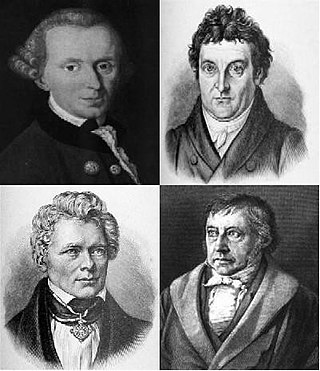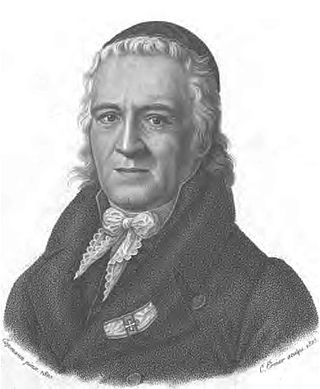Related Research Articles

Immanuel Kant was a German philosopher and one of the central Enlightenment thinkers. Born in Königsberg, Kant's comprehensive and systematic works in epistemology, metaphysics, ethics, and aesthetics have made him one of the most influential and controversial figures in modern Western philosophy. He has been called the "father of modern ethics", the "father of modern aesthetics", and for bringing together rationalism and empiricism, the "father of modern philosophy".

John Henry McDowell is a South African philosopher, formerly a fellow of University College, Oxford, and now university professor at the University of Pittsburgh. Although he has written on metaphysics, epistemology, ancient philosophy, nature, and meta-ethics, McDowell's most influential work has been in the philosophy of mind and philosophy of language. McDowell was one of three recipients of the 2010 Andrew W. Mellon Foundation's Distinguished Achievement Award, and is a Fellow of both the American Academy of Arts & Sciences and the British Academy.

German idealism is a philosophical movement that emerged in Germany in the late 18th and early 19th centuries. It developed out of the work of Immanuel Kant in the 1780s and 1790s, and was closely linked both with Romanticism and the revolutionary politics of the Enlightenment. The period of German idealism after Kant is also known as post-Kantian idealism or simply post-Kantianism. One scheme divides German idealists into transcendental idealists, associated with Kant and Fichte, and absolute idealists, associated with Schelling and Hegel.

Jerome Borges Schneewind was an American scholar of the history of philosophy. Latterly he was a Professor of Philosophy at Johns Hopkins University.

Karl Leonhard Reinhold was an Austrian philosopher who helped to popularise the work of Immanuel Kant in the late 18th century. His "elementary philosophy" (Elementarphilosophie) also influenced German idealism, notably Johann Gottlieb Fichte, as a critical system grounded in a fundamental first principle.
Paul Guyer is an American philosopher and a leading scholar of Immanuel Kant and of aesthetics. From 2012, he was Jonathan Nelson Professor of Philosophy and Humanities at Brown University until his retirement in 2023.
Robert Buford Pippin is an American philosopher. He is the Evelyn Stefansson Nef Distinguished Service Professor in the John U. Nef Committee on Social Thought, the Department of Philosophy, and the college at the University of Chicago.
Christopher Janaway is a philosopher and author. He earned degrees from the University of Oxford. Before moving to Southampton in 2005, Janaway taught at the University of Sydney and Birkbeck, University of London. His recent research has been on Arthur Schopenhauer, Friedrich Nietzsche and aesthetics. His 2007 book Beyond Selflessness: Reading Nietzsche's Genealogy focuses on a critical examination of Nietzsche's On the Genealogy of Morals. Janaway currently lectures at the University of Southampton.
Espen Hammer is Professor of Philosophy at Temple University. Focusing on modern European thought from Kant and Hegel to Adorno and Heidegger, Hammer’s research includes critical theory, Wittgenstein and ordinary language philosophy, phenomenology, German idealism, social and political theory, and aesthetics. He has also written widely on the philosophy of literature and taken a special interest in the question of temporality.
Michael Friedman is an American philosopher who serves as Suppes Professor of Philosophy of Science and Professor, by courtesy, of German Studies at Stanford University. Friedman is best known for his work in the philosophy of science, especially on scientific explanation and the philosophy of physics, and for his historical work on Immanuel Kant. Friedman has done historical work on figures in continental philosophy such as Martin Heidegger and Ernst Cassirer. He also serves as the co-director of the Program in History and Philosophy of Science and Technology at Stanford University.

Paul Walter Franks is the Robert F. and Patricia Ross Weis Professor of Philosophy and Judaic Studies at Yale University. He graduated with his PhD from Harvard University in 1993. Franks' dissertation, entitled "Kant and Hegel on the Esotericism of Philosophy", was supervised by Stanley Cavell and won the Emily and Charles Carrier Prize for a Dissertation in Moral Philosophy at Harvard University. He completed his B.A and M.A, in Philosophy, Politics and Economics at Balliol College, Oxford. Prior to this, Franks received his general education at the Royal Grammar School, Newcastle, and studied classical rabbinic texts at Gateshead Talmudical College.

Adrian William Moore is a British philosopher and broadcaster. He is Professor of Philosophy at the University of Oxford and tutorial fellow of St Hugh's College, Oxford. His main areas of interest are Kant, Wittgenstein, history of philosophy, metaphysics, philosophy of mathematics, philosophy of logic and language, ethics and philosophy of religion.
Allen William Wood is an American philosopher specializing in the work of Immanuel Kant and German Idealism, with particular interests in ethics and social philosophy. One of the world's foremost Kant scholars, he is the Ruth Norman Halls professor of philosophy at Indiana University, Ward W. and Priscilla B. Woods Professor, emeritus, at Stanford University, and before that a professor at Cornell University across parts of four decades. He has also held professorships and visiting appointments at several other universities in the United States and Europe. In addition to popularising and clarifying the ethical thought of Kant, Wood has also mounted arguments against the validity of trolley problems in moral philosophy.
Rae Helen Langton, FBA is an Australian-British professor of philosophy. She is currently the Knightbridge Professor of Philosophy at the University of Cambridge. She has published widely on Immanuel Kant's philosophy, moral philosophy, political philosophy, metaphysics, and feminist philosophy. She is also well known for her work on pornography and objectification.

Béatrice Longuenesse is a French philosopher and academic, who is the Silver Professor of Philosophy Emerita at New York University. Her work focuses on Immanuel Kant, Georg Wilhelm Friedrich Hegel, and the philosophy of mind. She is a fellow of the American Academy of Arts and Sciences. Longuenesse is one of the most prominent living Kant scholars, and her works have generated significant discussion around parts of Kant's corpus that were previously largely overlooked.

Barbara Herman is the Griffin Professor of Philosophy and Professor of Law at the University of California, Los Angeles Department of Philosophy. A well-known interpreter of Kant's ethics, Herman works on moral philosophy, the history of ethics, and social and political philosophy. Among her many honors and awards include a Guggenheim Fellowship (1985-1986) and election to the American Academy of Arts & Sciences (1995).
Oliver Sensen is a German philosopher and associate professor of Philosophy at Tulane University. He is known for his expertise on Kantian philosophy. Sensen is the vice-president of North American Kant Society.
Richard L. Velkley is an American philosopher and Celia Scott Weatherhead Distinguished Professor of Philosophy at Tulane University. Velkley is known for his expertise on Kant, Rousseau, and post-Kantian philosophy. He is a former associate editor of The Review of Metaphysics (1997–2006) and a former president of the Metaphysical Society of America (2017–18).

Henry Edward Allison was an American scholar of Immanuel Kant, widely considered to be one of the most eminent English-language Kant scholars of the postwar era. He was a professor and chair of the Philosophy Department at the University of California, San Diego and a professor at Boston University.
2020 in philosophy
References
- ↑ Watkins, Eric (2015). "Ameriks, Karl". In Audi, Robert (ed.). The Cambridge Dictionary of Philosophy (Third ed.). New York City: Cambridge University Press. pp. 31–32. ISBN 978-1-139-05750-9. OCLC 927145544.
- ↑ "Book of Members, 1780-2010: Chapter A" (PDF). American Academy of Arts and Sciences. Archived from the original (PDF) on 5 May 2011. Retrieved 17 April 2011.